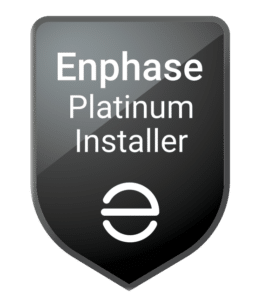The demand for clean and sustainable energy continues to rise and many business owners in Massachusetts are considering the switch to solar power. Investing in commercial solar not only helps reduce carbon emissions but also offers long-term financial benefits. However, navigating the complexities of solar energy can be challenging, especially for those new to the industry. This guide aims to provide Massachusetts business owners with a comprehensive overview of commercial solar, including its benefits, incentives, installation process, and key considerations.
1. Understanding the Benefits of Commercial Solar:
- Environmental Advantages: Solar energy is a renewable and clean source of power that reduces greenhouse gas emissions, helping combat climate change.
- Cost Savings: By generating electricity on-site, businesses can significantly reduce their energy bills and protect themselves from rising utility costs.
- Return on Investment (ROI): Solar installations offer attractive financial returns over the long term, with many businesses experiencing payback periods of 5-7 years.
- Enhanced Reputation: Demonstrating a commitment to sustainability can improve a business’s brand image and attract environmentally conscious customers.
2. Incentives and Financing Options:
- Inflation Reduction Act (IRA): The IRA offers a tax credit of 30% of the total system cost for commercial solar installations.
- Massachusetts Renewable Energy Certificates (RECs): Businesses can earn RECs by generating solar electricity, which can be sold on the market for additional revenue.
- Property Tax Exemptions: Many Massachusetts municipalities offer property tax exemptions or credits for commercial solar installations.
- Grants and Financing: Various state and local programs provide grants, loans, and other financial incentives to support the adoption of solar energy.
3. The Solar Installation Process:
- Energy Audit and Site Assessment: A professional solar installer will evaluate your business’s energy usage, roof condition, and available space to determine the system’s size and design.
- Permits and Approvals: My Generation Energy will handle the necessary permits, interconnection agreements, and utility approvals required for the installation.
- System Design and Engineering: Solar panels, microinverters, and other components will be selected and configured to meet your business’s energy needs.
- Installation and Commissioning: The solar panels and associated equipment will be installed and connected to the electrical system. The system will undergo testing and inspection before being commissioned for use.
4. Key Considerations:
- Roof Suitability: Assess the condition, orientation, and shading of your roof to determine its suitability for solar panel installation. My Generation Energy always conducts a roof assessment to ensure that the condition of your roof can withstand solar panels.
- Energy Consumption: Analyze your business’s energy usage patterns to accurately size the solar system and maximize savings.
- Available Incentives: Stay updated on federal, state, and local incentives to optimize your financial returns. Luckily, the team at My Generation Energy is up-to-date on all the incentives available for commercial projects.
- Choosing a Qualified Installer: Select an experienced and reputable solar installer who can guide you through the process and ensure quality installation.
Conclusion:
Investing in commercial solar power in Massachusetts offers numerous benefits for businesses, ranging from cost savings to environmental sustainability. By understanding the incentives, installation process, and key considerations, business owners can make informed decisions and take advantage of the state’s robust solar industry. Embracing solar energy not only benefits your bottom line but also contributes to a greener future for Massachusetts and our beautiful natural resources.
Are you thinking about installing solar at your home or business? My Generation Energy has been installing the highest quality solar design and installation on Cape Cod, the South Shore, South Coast and Greater Boston area since 2008.





